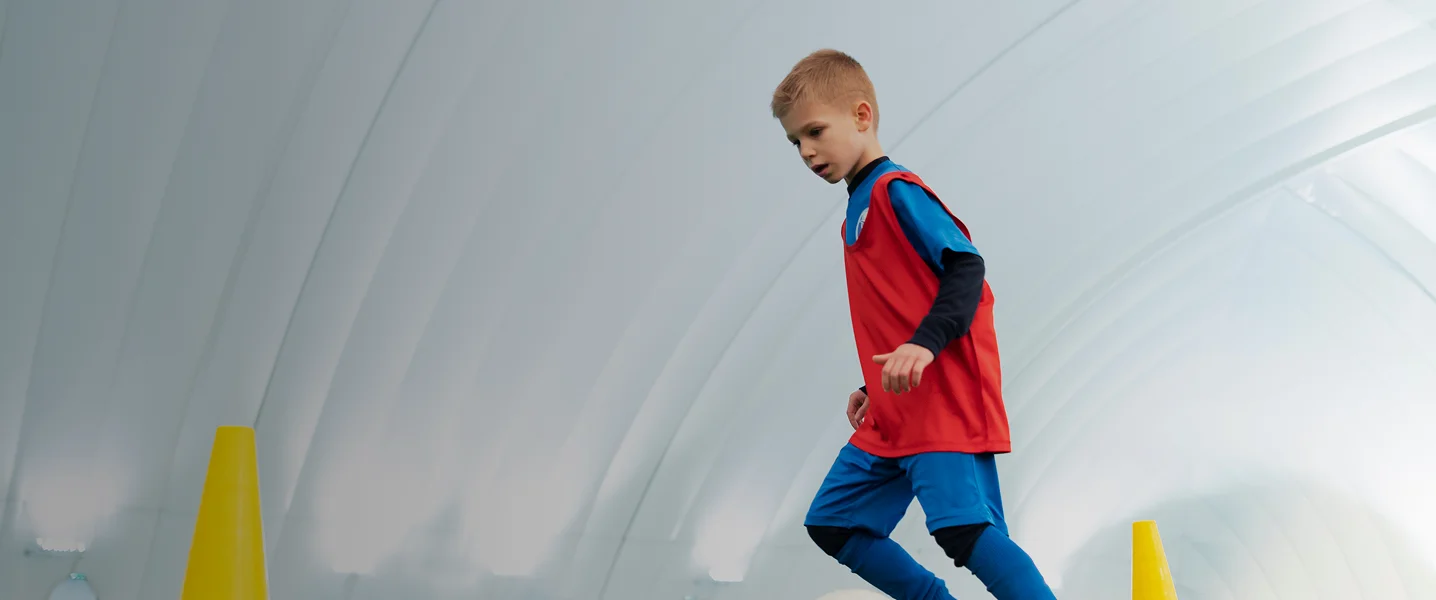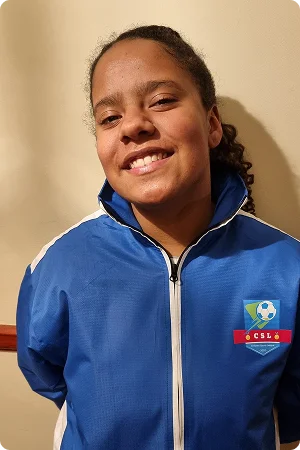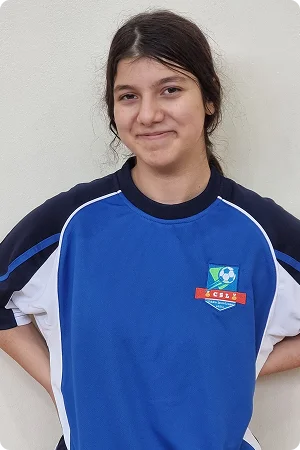Fun Football Fundamentals
Learning a new sport, especially one as dynamic as football, can be daunting for young children. The sheer number of skills involved, from dribbling and passing to shooting and teamwork, can feel overwhelming. Effective introductory football lessons for kids need to address this potential for discouragement by breaking down the learning process into manageable, enjoyable steps. Instead of bombarding children with complex techniques, a successful approach focuses on building a strong foundation of fundamental skills through fun activities and games. This builds confidence, reduces anxiety, and creates a positive first impression of the sport. The emphasis should always be on enjoyment and participation, ensuring that children develop a genuine love for the game rather than associating it with pressure or frustration. This initial positive experience is crucial for long-term engagement and skill development. Introductory lessons should incorporate a variety of engaging drills and exercises, perhaps utilizing obstacle courses or simple target practice to make learning interactive and stimulating.
Introductory Football Lessons for Kids
The benefits of early exposure to football extend far beyond simply developing physical skills. While improved coordination, balance, and agility are certainly valuable outcomes, the sport also fosters crucial social and emotional development. Teamwork is paramount in football; children learn the importance of collaboration, communication, and supporting their teammates. They also learn to follow instructions, respond to constructive criticism, and demonstrate good sportsmanship, both on and off the field. Furthermore, participation in team sports provides opportunities to build self-esteem and confidence. The sense of accomplishment that comes from mastering new skills and contributing to the team's success is incredibly valuable for a child's self-image and personal growth. The social aspect of football is equally significant; children build friendships, learn to interact positively with peers from diverse backgrounds, and develop crucial social skills, like communication, negotiation, and conflict resolution. These benefits extend beyond the football pitch, positively impacting their interactions in school and other social settings. A well-structured introductory program will actively cultivate these social and emotional benefits alongside the physical ones.
Mastering Basic Football Skills
A good introductory football program should begin with the most fundamental skills. This means focusing initially on ball control, teaching children how to comfortably and confidently manipulate the ball with their feet. Simple dribbling exercises, initially in open space, can gradually progress to more challenging drills involving obstacles or changes in direction. The use of age-appropriate equipment is crucial at this stage; lightweight, soft footballs are preferable to minimise the risk of injury and ensure the children feel comfortable and safe. Fun games, perhaps involving races or challenges, can be integrated into the drills to maintain enthusiasm and engagement.
Once basic dribbling is established, the introduction of passing techniques should follow. These should begin with short, simple passes, focusing on accuracy and control rather than power or distance. The importance of teamwork should be emphasized from the start; children should be encouraged to work together, communicate effectively, and support each other's efforts. Simple games, such as small-sided matches, can be introduced at this stage, allowing children to practice passing and dribbling in a more game-like setting. The focus should remain on fun and participation, with regular positive reinforcement from coaches.
As children gain confidence and competence in basic skills, the program can gradually introduce more advanced techniques. Shooting practice, for example, can begin with aiming at close targets, gradually increasing the distance as accuracy improves. Different shooting techniques, like instep shots and toe-punches, can be introduced as the children become more proficient. The use of small-sided games continues to be vital, allowing children to apply their developing skills in a more dynamic and realistic context. Coaches should continue to provide individualised support and feedback, ensuring that each child is progressing at their own pace and receiving the appropriate level of challenge. Regular assessments of progress should be incorporated to identify areas for improvement and ensure that the program remains tailored to the children's needs and abilities.
Football Fun for Everyone
Maintaining a fun and engaging environment is crucial for the success of any introductory football program. This requires more than simply enjoyable drills and games; it involves creating a positive and inclusive atmosphere where every child feels valued and encouraged. Coaches play a vital role in this, utilizing positive reinforcement techniques to build confidence and motivation. Focusing on effort and improvement rather than solely on results helps children develop a growth mindset and reduces the pressure associated with competition. The use of appropriate language is also important; avoiding criticism and focusing instead on constructive feedback ensures that children feel supported and encouraged.
Age-appropriate equipment and drills are essential for safety and effectiveness. Smaller goals and softer balls can significantly reduce the risk of injury and ensure that children feel comfortable and confident while playing. Small-sided games are ideal for providing more touches on the ball, increasing the opportunities for skill development and enhancing enjoyment. These games also promote teamwork and communication, and the smaller format allows for more balanced participation among all players. Moreover, the reduced number of players per team means children get more opportunities to showcase their skills and receive more attention from coaches, fostering individual growth and confidence.
The emphasis on enjoyment and participation extends to ensuring a safe and supportive learning environment. Background checks for all coaches are essential to ensure the safety and well-being of the children. Clear rules and guidelines should be established and communicated clearly to both children and parents, creating a structure that encourages respectful behaviour and fair play. Open communication with parents is also important, ensuring that they are informed of the program's progress and any concerns. This collaborative approach helps to create a supportive network that contributes to the children's overall development and enjoyment of the sport. A successful introductory program will not only teach children the fundamentals of football, but also instill a love for the game and a foundation for lifelong participation.
Veja outras informações nos links a seguir: introductory football lessons for kids in watford, introductory football lessons for kids in wembley, introductory football lessons for kids in north west london, junior football academy, junior tennis academy.
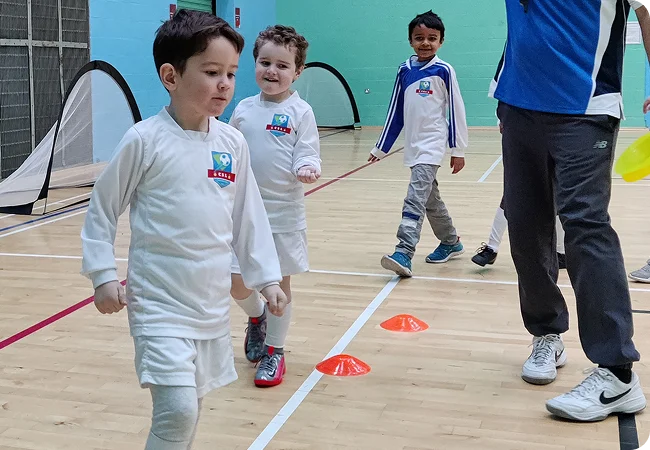
Our Educational Method
We use sport to boost early learning. Key skills like literacy, numeracy, colours, and shape recognition are a core focus in all our sessions.
Our expert coaches have years of experience coaching children from 18 months to 11 years.
All coaches hold Enhanced DBS Checks and Basic First Aid certification. We are fully committed to the safety of all children, parents, and staff, following strict safeguarding protocols.
Every game provides an engaging theme and a new skill to practise. So, whilst children are learning essential skills, they are having maximum fun.
Each session is filled with fun, energy, and varied movement, which helps to build their core coordination skills.
Stickerbook Rewards
The Stickerbook is an excellent way to showcase the children's program to parents and incentivise good behaviour and participation. When the nursery chooses to enrol, Children Sport League provides every child with a Stickerbook to keep.
At the end of each session, the coach awards each child one sticker to place in their Stickerbook.
The children are rewarded with certificates, medals, and special prizes as they complete pages.
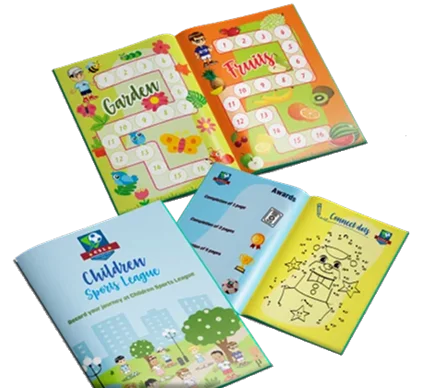
Private Lessons
Children Sports League's Private Sessions are bespoke and specialised to help your child to improve their skills in football.
These Private sessions can run in your garden or a local park. You can also invite your children's friends to take part.
We ensure that our coaches are fully aware of your needs for the session. For instance, a 'Technical' session will be composed for football drills that will focus on teaching basic football skills.
You may also like a 'Fun Session', this session will be composed of games that will get the children moving around, and using a lot of energy.
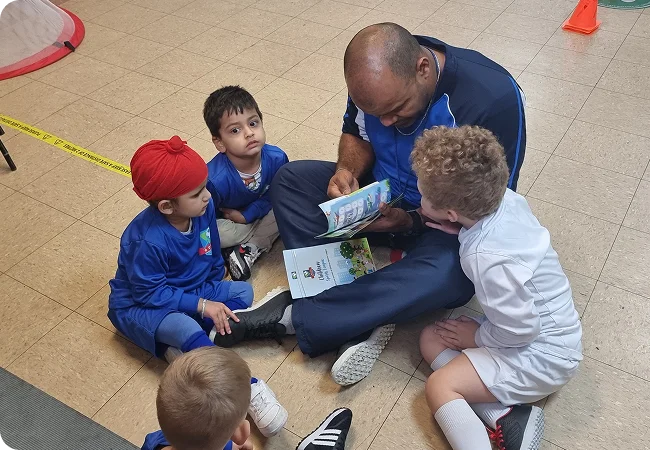
Our Coaches
At CSL all our coaches have Enhanced DBS checks (provided on request) and basic first aid. Furthermore, sessions are run by coaches with 18+ months of experience, ensuring they are prepared for any occurrence.
Birthday Parties
Our birthday parties are 60 minutes filled with lots of fun games.
Your child will enjoy many activities, like a mini football match or fun games that improve their football skills and interests, making their day unique.
The team will receive a medal, and the birthday child receives a special trophy. For further information, feel free to contact us; we are always happy to help make your child's birthday special.
Our Gallery
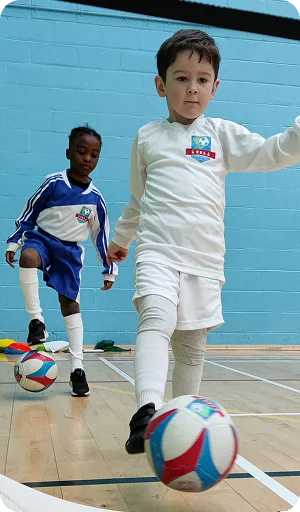
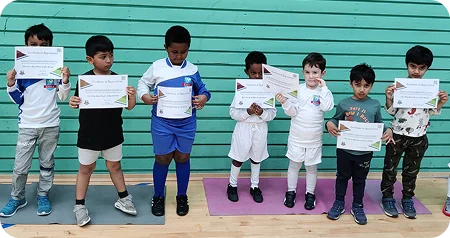
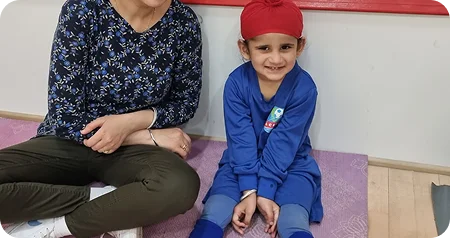
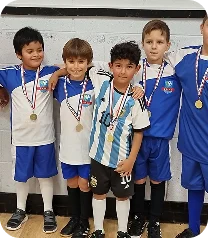
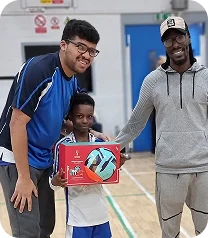
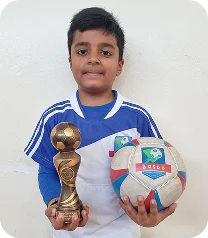
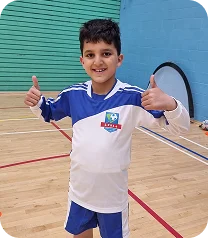

Contact Us
We'd love to hear from you! Whether you have questions, feedback, or want to book a session, get in touch with us.

